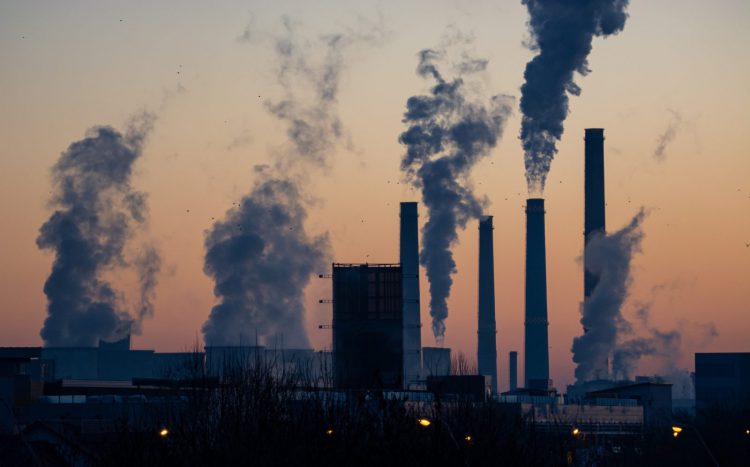Air pollution reduces life expectancy worldwide by an average of three years, according to a study in Cardiovascular Research. Research shows that polluted air has an impact on global mortality greater than tobacco smoking, HIV/AIDS, malaria, and violence, including wars.
Premature deaths
The study conducted by the Max Planck Institute for Chemistry in Mainz, Germany, published March 3, examined the global mortality rate in 2015 and concluded that air pollution caused 8.8 million premature deaths globally.
Dr. John Balmes, a volunteer medical spokesman for the American Lung Association and professor of medicine at the University of California, San Francisco, mentioned, “There’s very little question that air pollution is responsible for deaths and disease.”
He noted that the World Health Organization (WHO) estimated that seven million deaths every year are caused by air pollution.
Stroke and heart attack
According to the research, smog worsens lung disease and boosts the risks of stroke and heart attack. Deaths from heart disease and stroke account for 43 percent of the loss in life expectancy worldwide, making it the biggest cause of death.
Dirty air’s impact on the heart was highlighted by Dr. Thomas Münzel, a study co-author and cardiologist at the University Medical Center of the Johannes Gutenberg University in Mainz.
“Air pollution should be included in guidelines on heart disease prevention,” said Münzel. He added that at present, it’s “hard to understand” how the prevention guidelines from the American College of Cardiology/American Heart Association “do not mention air pollution as a risk factor at all.”
Air pollution vs. other leading death causes
The new study calculated the expected reduced lifespan and compared air pollution’s impact with other causes of death. Researchers utilized different statistical “models.” These include simulating atmospheric chemical processes and observing how they interact with land, water, and chemicals from natural and human-made sources.
Reduced lifespan on a global scale
Air pollution’s impact was also compared with the rate of non-accidental deaths, which was based on 41 studies from 16 countries.
As a result, air pollution was linked to global mortality, with people in East Asia experiencing the largest life expectancy reduction by an estimated four years. On the other hand, dirty air cuts life expectancy by two to three years for residents of South Asia, Africa, and Europe. Meanwhile, the weakest impacts are in Australia, South America, and North America, which cost lost lives of a few months to around one year.
The worst air polluters
Smog and air pollution are highly attributed to fossil fuels on a global scale, the research presented.
“Moving away from fossil fuels could not only address climate change, but also help everyone breathe cleaner air,” Balmes mentioned.
According to the study, getting rid of fossil fuel emissions could add more than a year to the average life expectancy around the world.
Air quality improvement
Air quality has been getting better, at least in the United States, stated Balmes. He also said that more improvements would lead to more benefits, making fewer deaths from heart disease as the main priority.
Browse our website for more news in the medical industry.
















